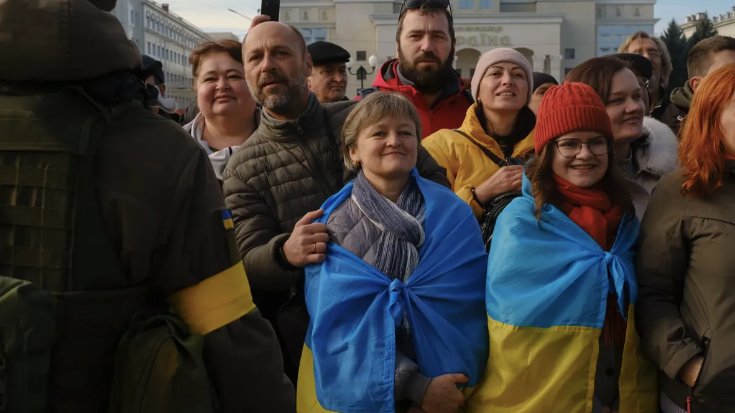There are so many flags in here. It looks like the city’s residents have been keeping those at home during the occupation and took them out to the streets again now. It’s difficult to forget how many locals, carrying nothing but blue and yellow flags and posters reading “Kherson is Ukraine” used to bar the road for Russia’s tanks during the early weeks of the invasion, chanting “Go home!” Those who have now fled to the east bank of the Dnipro must have remembered that “warm welcome”, too.
There are so many tears here. People hug Ukrainian servicemen, kiss them, and try to toss them in the air. The soldiers are asked to sign flags, jacket sleeves, or pieces of paper. Those who have their phone batteries charged are the lucky ones, they take selfies with the combatants. I arrived in Kherson the same day President Zelensky did. His arrival brought network connection into the city back again, as well as the Internet via Starlink satellites and a charging station: what a miracle it was for this place! “It feels so unusual to speak over the phone,” someone says in the crowd. The people here are thirsty for news, and they learn it longingly.
There are many children here. Some are very small: their parents brought them here as if it was a holiday celebration, although the liberation of a Ukrainian city is bigger than any festivity. Others are teenagers who have matured so much as if eight and a half months of horror were actually long years. They volunteer to unload a 20-tonne truck with humanitarian aid, and then they beg the servicemen for sleeve patches like little kids: each boy living in a liberated settlement has his own collection of those “for the history”.
It’s challenging for volunteers to reach the city so far as the road checkpoints still have strict access mode, the mopping-up operation is still on. This is why each vehicle that manages to pass through the checkpoints gets a welcome as warm as the military men do here in Kherson’s central square. Bread, drinking water, candles and diapers are in highest demand.
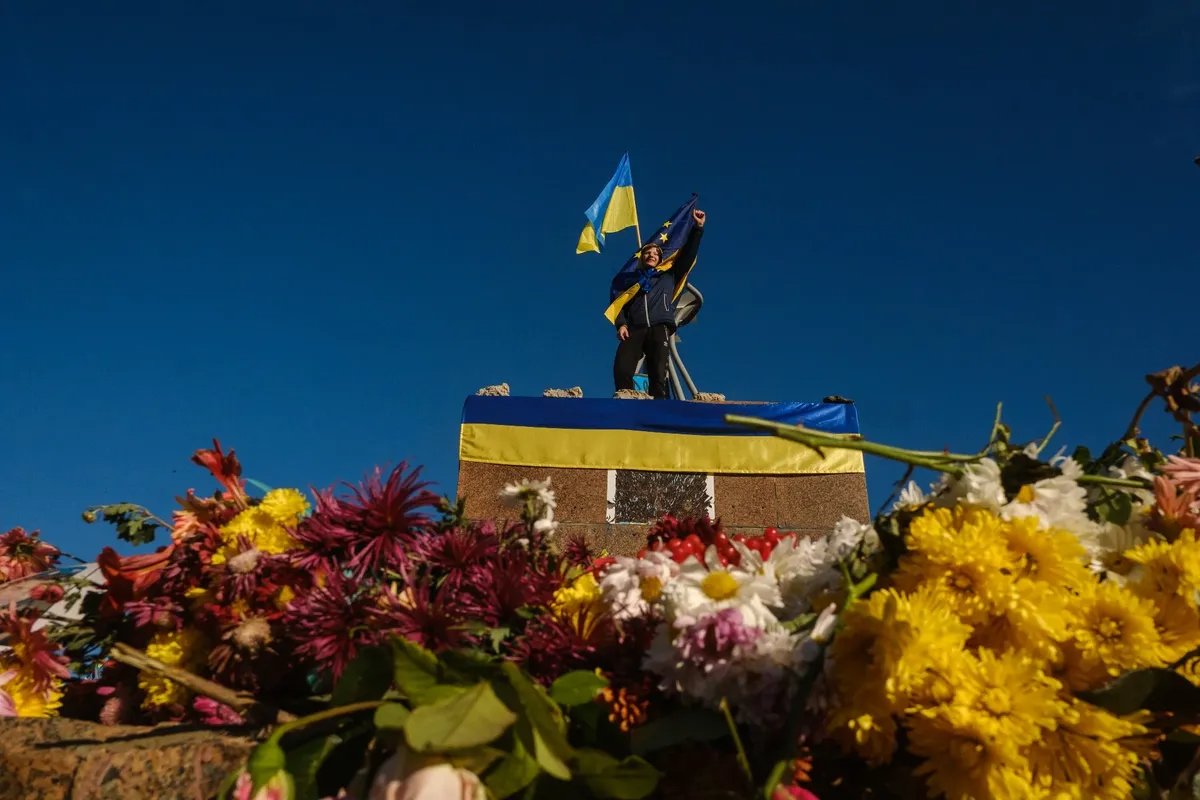
Photo by Heorhii Ivanchenko, exclusively for Novaya Gazeta Europe
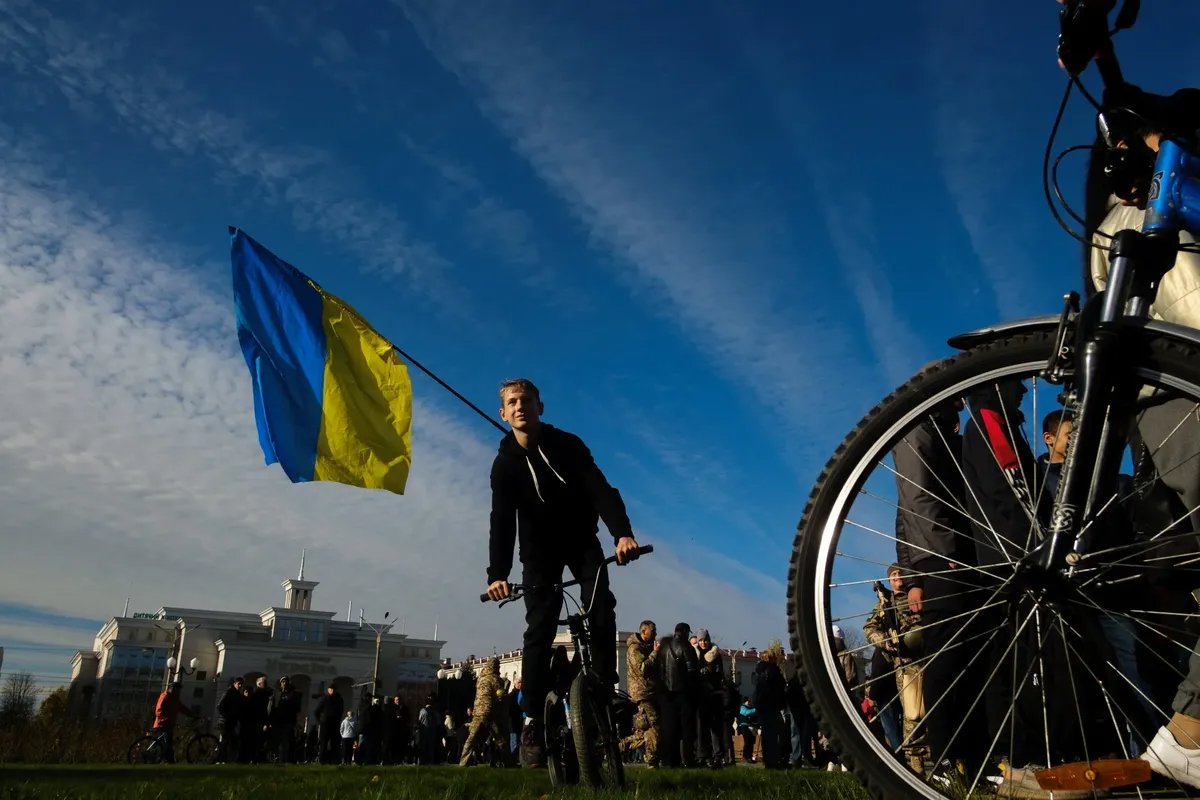
Photo by Heorhii Ivanchenko, exclusively for Novaya Gazeta Europe
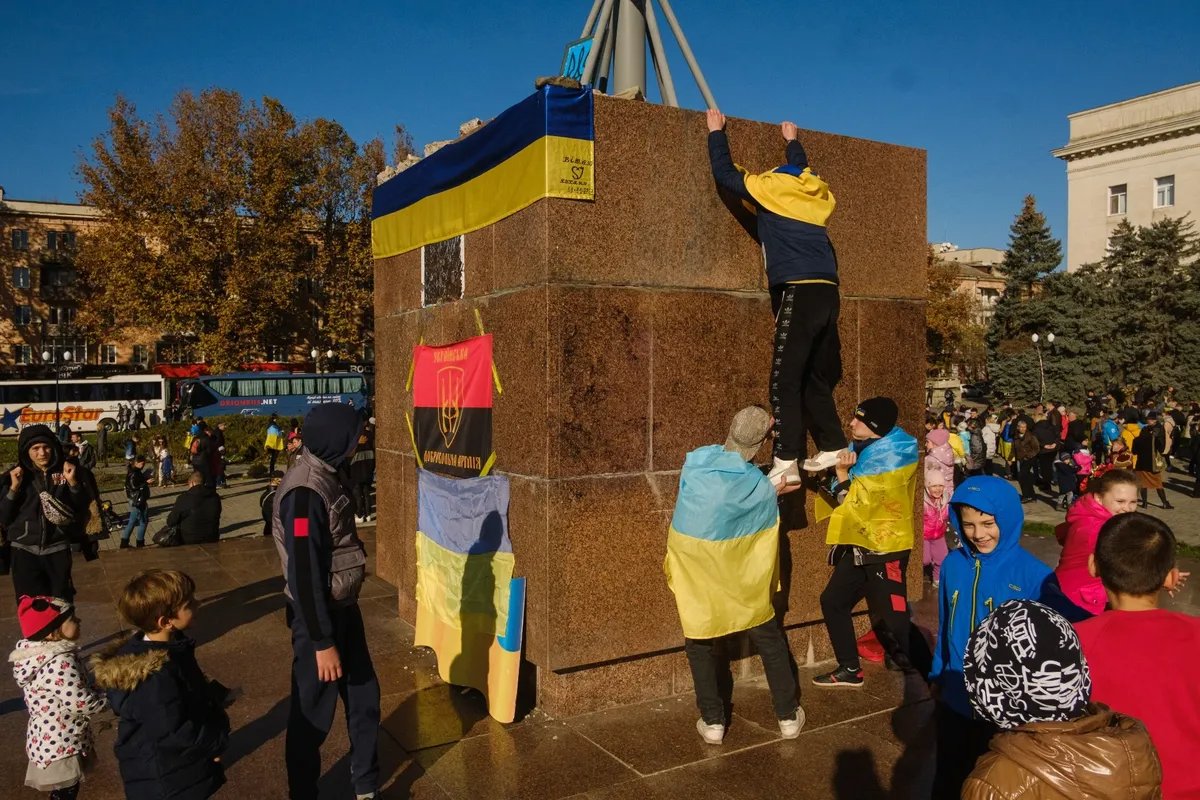
Photo by Heorhii Ivanchenko, exclusively for Novaya Gazeta Europe
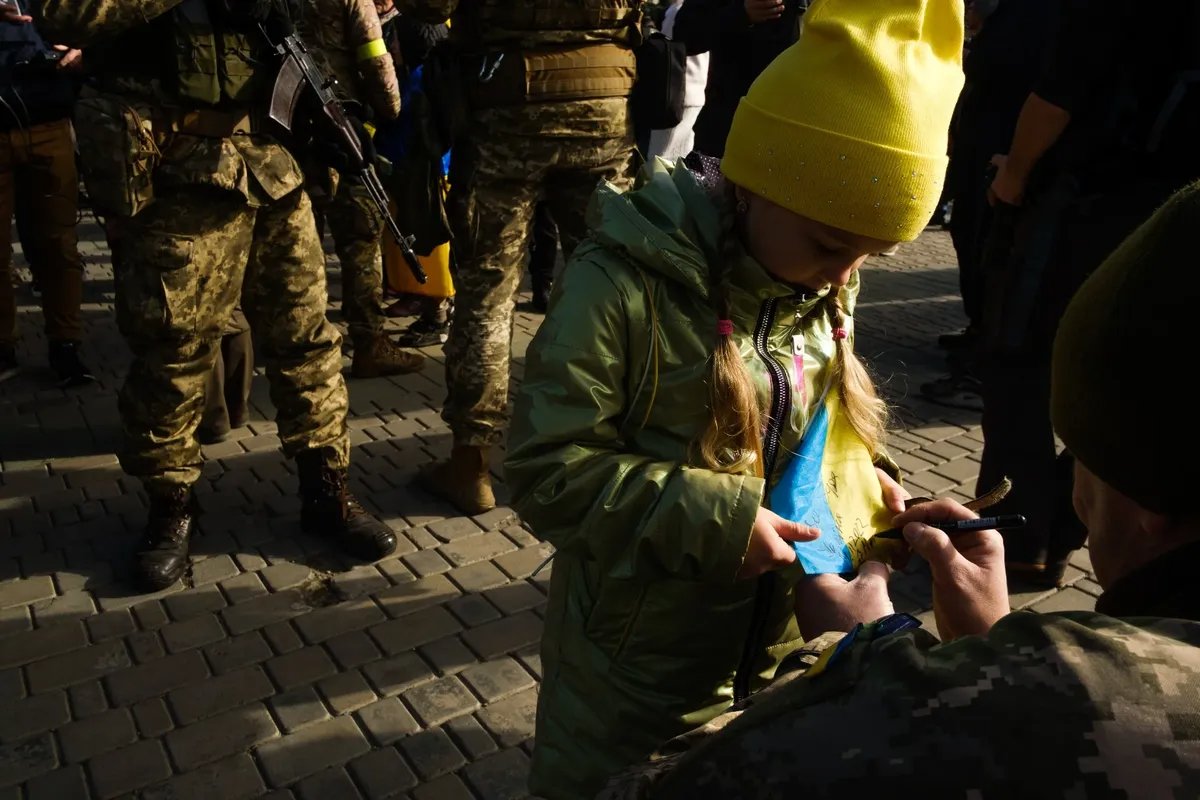
Photo by Heorhii Ivanchenko, exclusively for Novaya Gazeta Europe
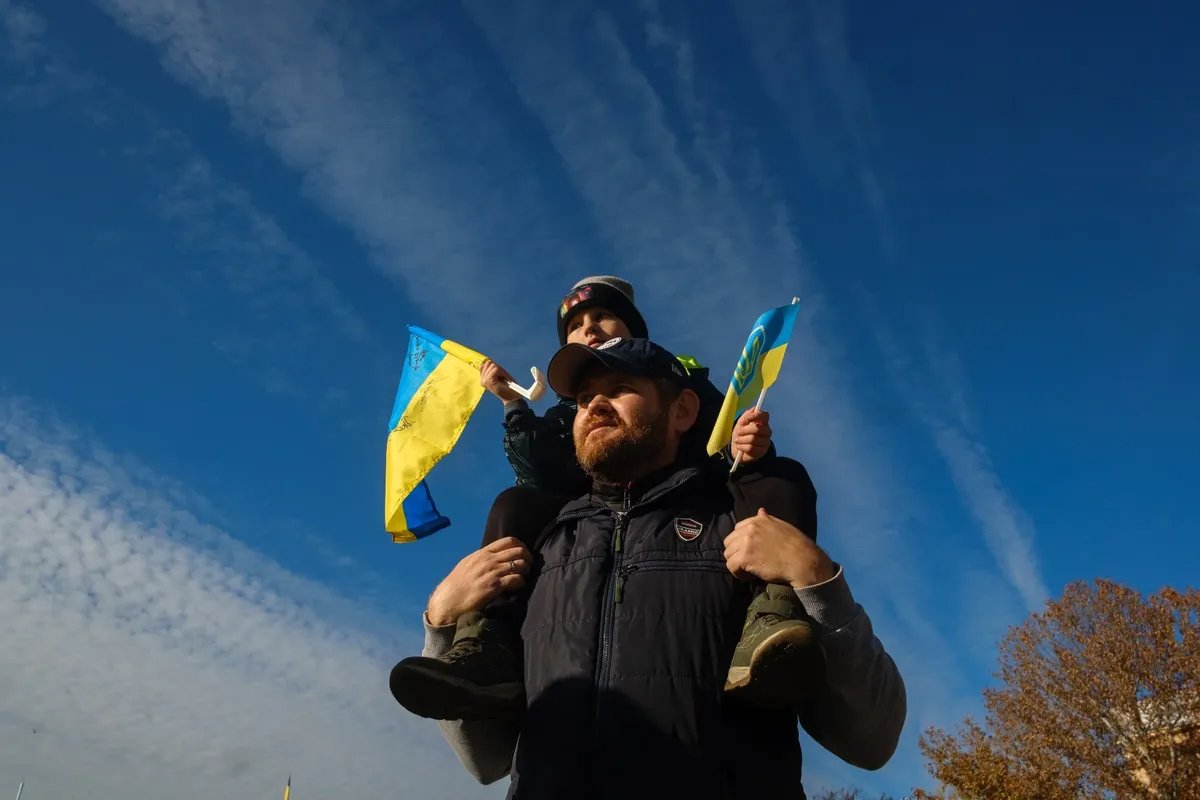
Photo by Heorhii Ivanchenko, exclusively for Novaya Gazeta Europe
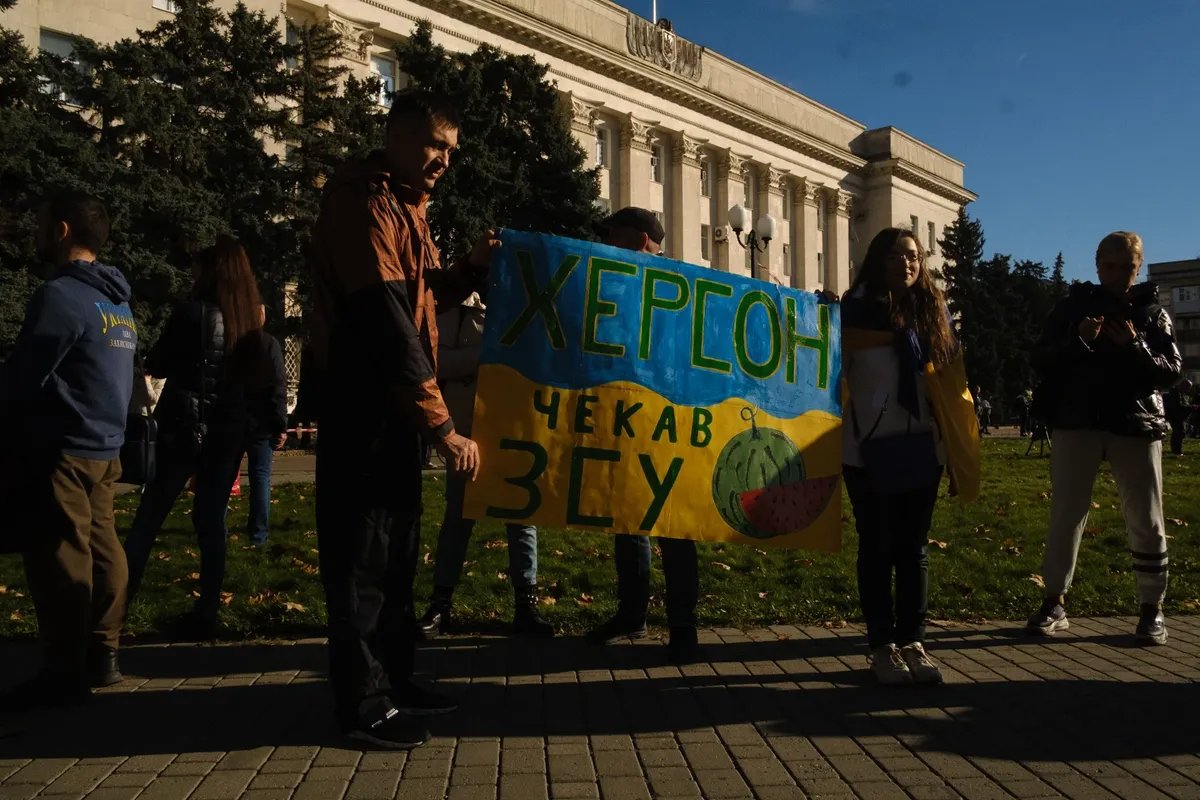
Photo by Heorhii Ivanchenko, exclusively for Novaya Gazeta Europe
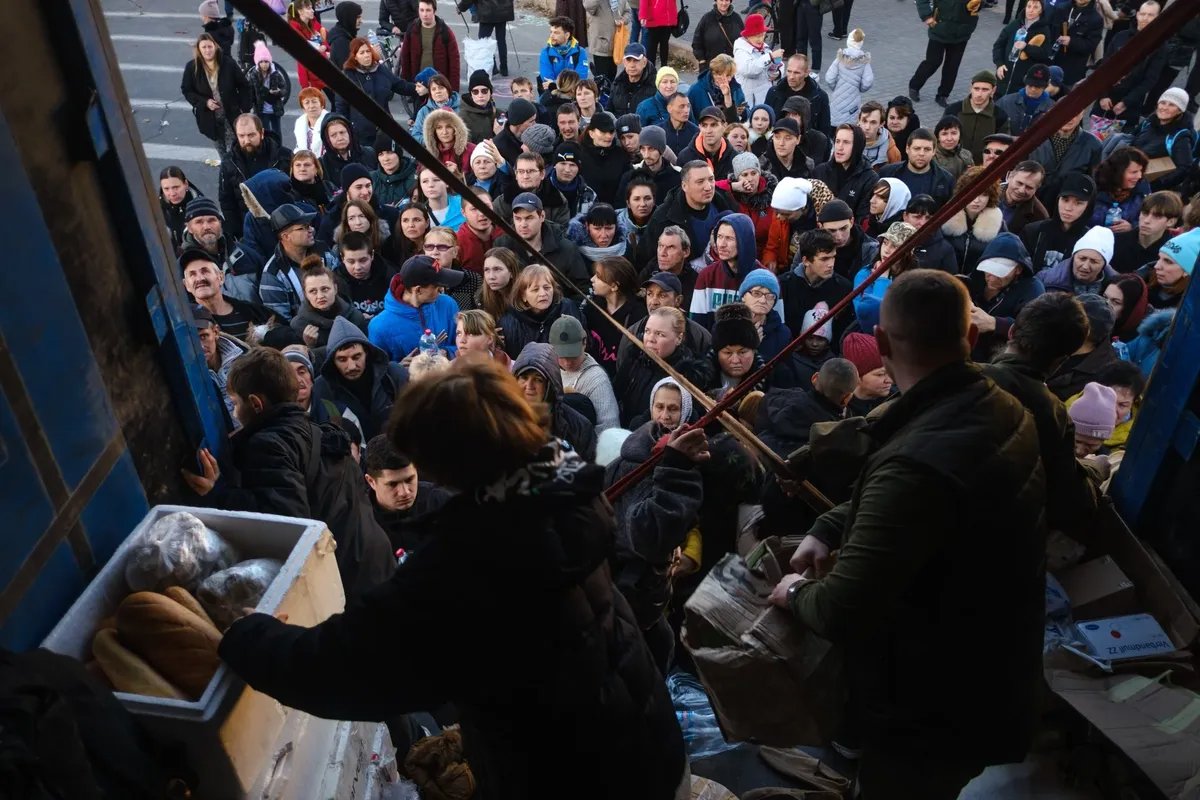
Volunteers hand out bread, candles, and drinking water to the locals. Photo by Heorhii Ivanchenko, exclusively for Novaya Gazeta Europe
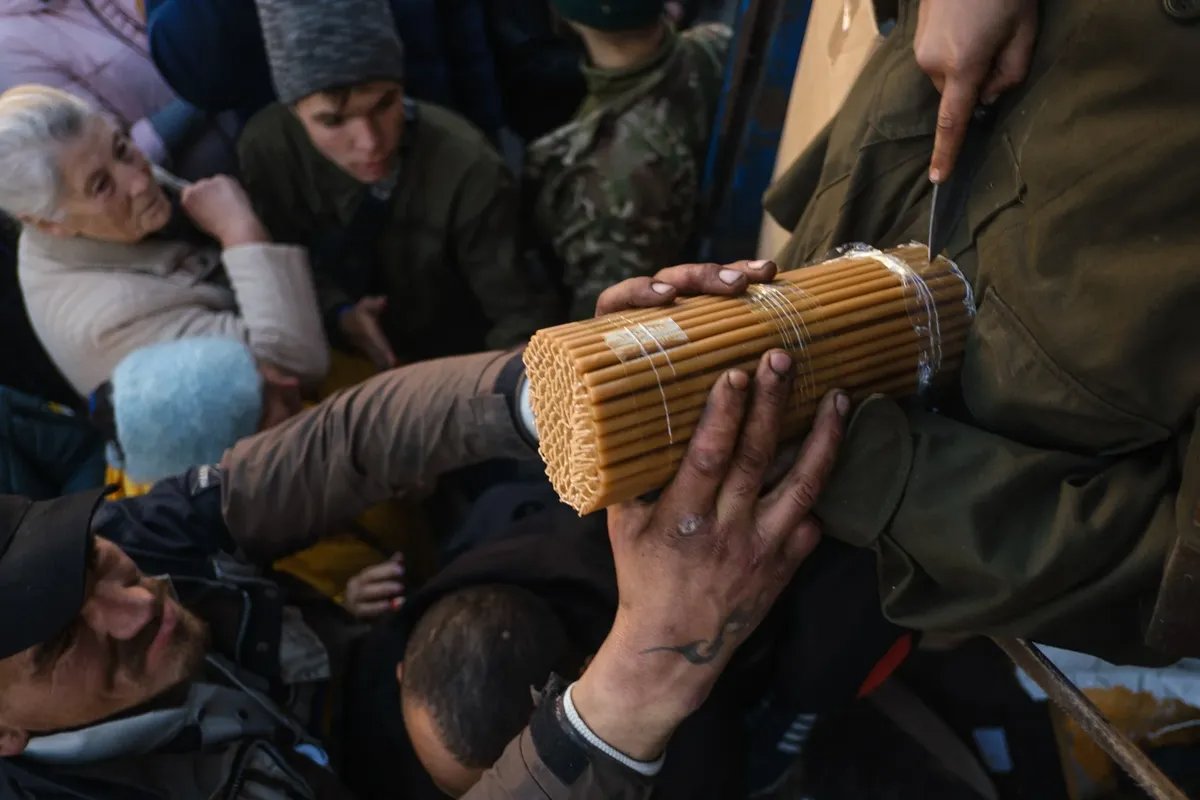
Photo by Heorhii Ivanchenko, exclusively for Novaya Gazeta Europe
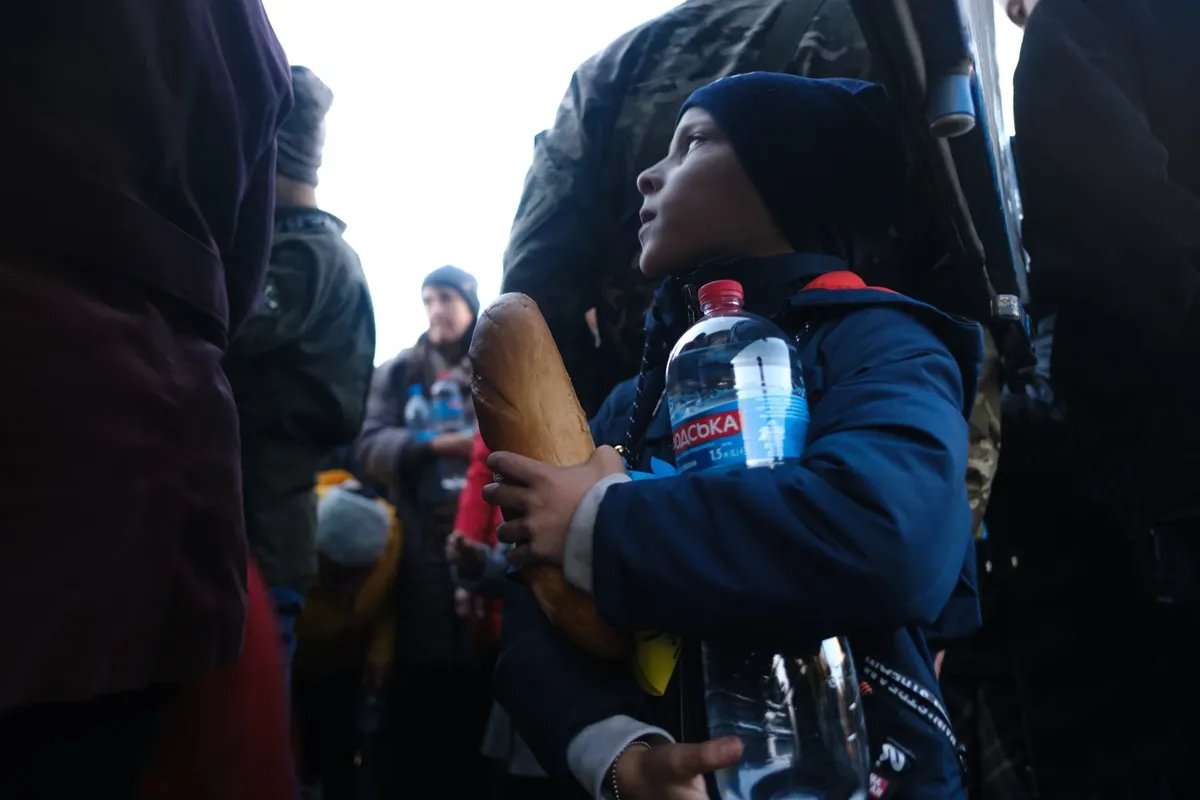
Photo by Heorhii Ivanchenko, exclusively for Novaya Gazeta Europe
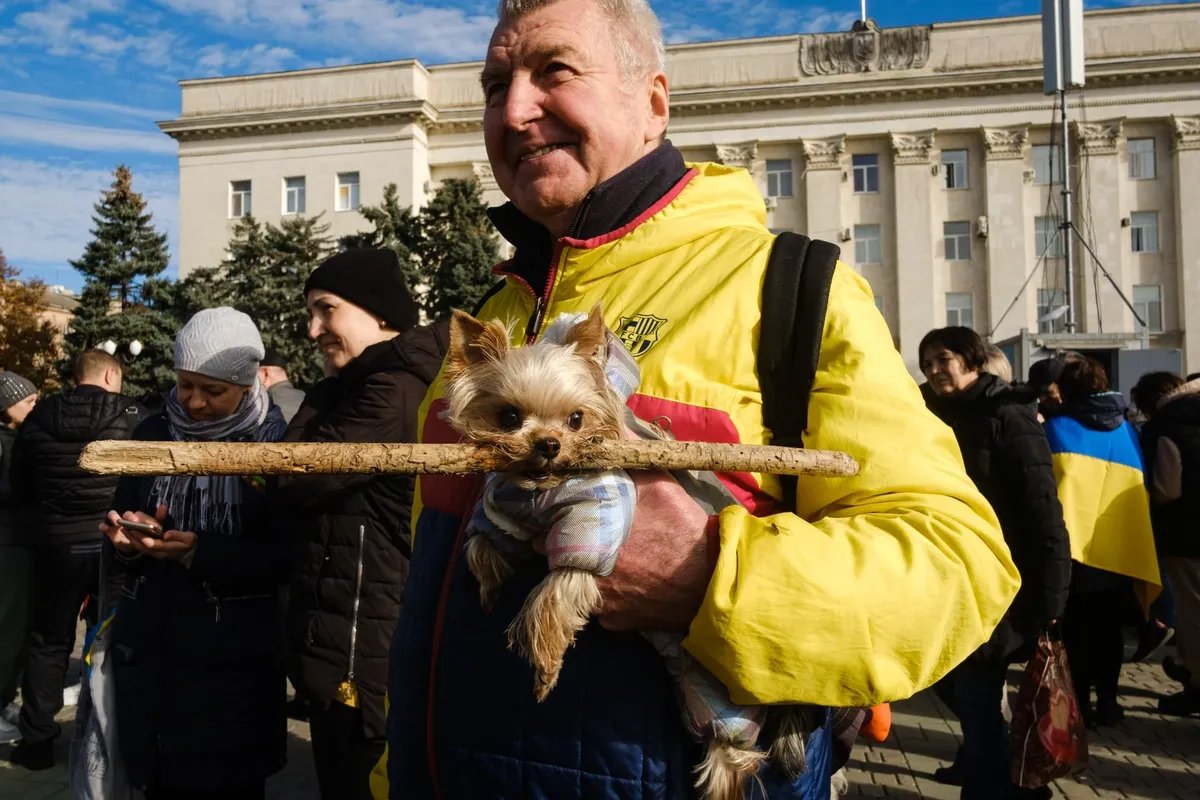
Photo by Heorhii Ivanchenko, exclusively for Novaya Gazeta Europe
Join us in rebuilding Novaya Gazeta Europe
The Russian government has banned independent media. We were forced to leave our country in order to keep doing our job, telling our readers about what is going on Russia, Ukraine and Europe.
We will continue fighting against warfare and dictatorship. We believe that freedom of speech is the most efficient antidote against tyranny. Support us financially to help us fight for peace and freedom.
By clicking the Support button, you agree to the processing of your personal data.
To cancel a regular donation, please write to [email protected]
